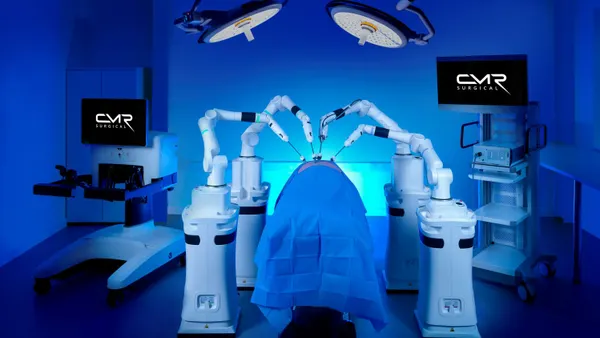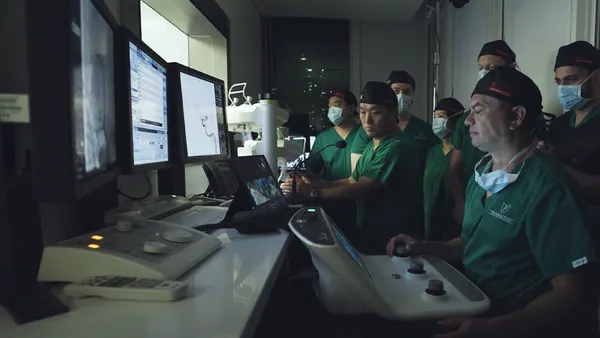Dive Brief:
- TransMedics Group announced Monday FDA premarket approval to expand the indication for its lung preservation and ex-vivo assessment system to include donor lungs initially deemed unacceptable for transplant due to cold storage limitations.
- The approval allows the Organ Care System technology to be used with donor lungs after both brain death and circulatory death. The system previously was approved only for standard criteria lungs from donors after brain death.
- The Andover, Massachusetts-based company hopes the approval can enable a significant increase in donor lung utilization for patients with end-stage organ failure.
Dive Insight:
FDA has identified a national need to expand the pool of organs available for transplant. To further that goal and reduce the number of unused organs, the agency last month finalized guidance on an approach for designing animal tests to evaluate machine perfusion organ preservation devices. The studies are meant to support investigational device exemption and other premarket applications like 510(k)s, De Novos and PMAs.
In April, FDA also approved a lung preservation system from Sweden-based Xvivo Perfusion that can ventilate and oxygenate a donor lung while pumping the organ with a preservation solution until it can be assessed for transplant. The Xvivo device gives doctors time to re-evaluate the functionality of marginal quality lungs that failed initial transplant criteria.
Cold static preservation is the standard of care in organ preservation, but the amount of time in which the organ can remain viable this way is limited. Organs are submerged in a preservation solution in a closed container at a low temperature.
TransMedics' technology uses portable ex-vivo perfusion with warm oxygenated and nutrient-enriched blood. The system, sometimes referred to as a "lung in a box," acts as a miniature intensive care unit that allows physicians to monitor and assess the lung's viability outside the body, according to the company.
Only 15% of lungs from deceased donors are approved for transplant. The functionality of most donated lungs is often impaired because of issues like poor lung quality or injury, and sometimes there isn't enough time to find a recipient who is a match.
About 2,530 lung transplants were performed in 2018, according to HHS statistics. A lung transplant is the only life-saving treatment available for end-stage lung disease.
FDA based its approval of TransMedics' expanded indication on results of the company's pivotal Expand clinical trial that found the Organ Care System safe and effective for determining the suitability for transplant of donor lungs initially deemed unacceptable for procurement and transplant due to cold storage limitations, the company said.
TransMedics said it will expand its post-market Thoracic Organ Perfusion Registry to collect long-term post-market data from recipients of all Organ Care System lungs preserved standard criteria and initially deemed unacceptable donor lungs.












